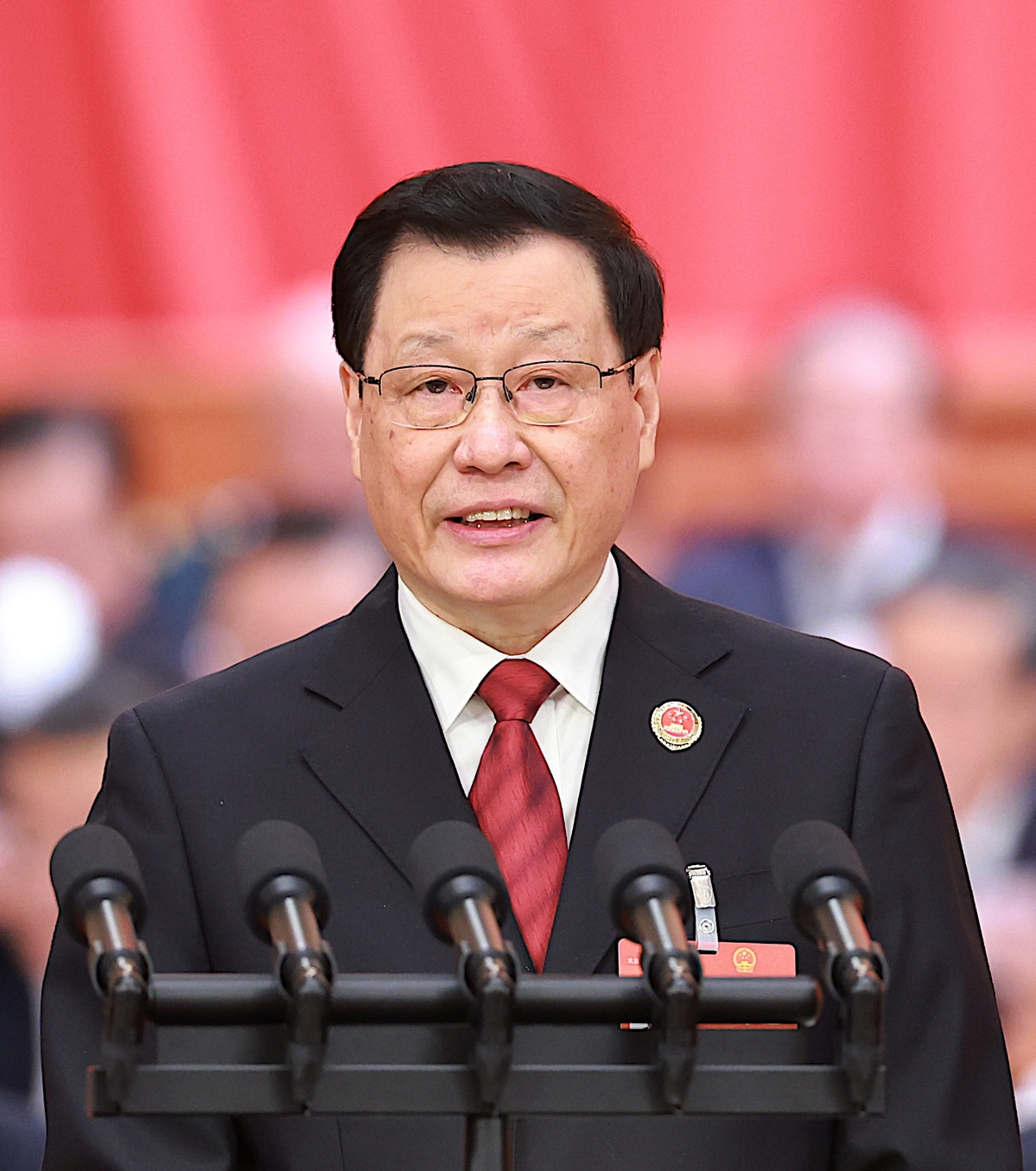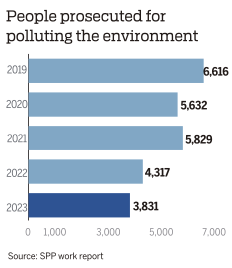Environmental legal cases down last year

China saw a drop in the number of cases involving environmental issues last year thanks to harsh punishments of polluters and the general public's increasing awareness of the importance of environmental protection, annual work reports from top judicial authorities said.
The reports of the Supreme People's Court and the Supreme People's Procuratorate were submitted to the ongoing second session of the 14th National People's Congress, the country's top legislature, on Friday for review.

Chinese prosecutors accused 3,831 people of polluting the environment in 2023, a decrease of 11.3 percent year-on-year. They also initiated 84,000 public-interest lawsuits to supervise environmental administrations to better perform duties, according to the SPP report.
"We've also provided a special report on procuratorial work in environmental protection for the NPC Standing Committee," Ying Yong, SPP procurator-general, said when delivering a work report at the session.
Also in 2023, Chinese courts adjudicated 232,000 environmental cases, down 5.8 percent year-on-year. Among the cases, more than 5,300 focused on pollution, a decline of 11.5 percent compared to 2022, the SPC work report showed.
"The drop in the figures indicates that the concept of harmonious coexistence between humans and nature has been deeply rooted in everyone's mind, and judicial measures have also played a role in beautifying the country," Zhang Jun, president of the SPC, said while delivering a work report to national lawmakers.
Over the past few years, prosecutors and judges across the country have taken various measures to strengthen environmental protection and advance sustainable development.

For example, while increasing penalties for polluters, Chinese courts have been required to guide them to repair the damaged environment and prevent pollution through upgrading technologies.
In a case heard by a court in Zhejiang province, a company was not only fined for handing over 500 tons of chemical production paint packaging waste drums to unqualified individuals for disposal, but was also urged to innovate its technology to reduce pollution caused by the drums, according to the top court.

In addition, the number of environmental tribunals increased to over 2,800 last year from about 500 in 2016 to improve the professionalism of relevant case handling, the top court added. With strong implementation of the Yangtze River Protection Law and the Yellow River Protection Law, the SPP also said in its work report that it has worked for the China Coast Guard to jointly crack down on illegal sand mining, and guided prosecutors in the Inner Mongolia autonomous region and the provinces of Hebei, Heilongjiang and Jilin to monitor exotic species, prevent desertification and enhance the protection of black soil resources.
Although environmental violations and crimes are being reduced, the top judicial authorities stressed that efforts to promote environmental conservation and tighten supervision in this area will not be weakened.
"We'll continue improving the efficiency and quality in the handling of environmental cases, with optimized legal services in this regard, so that everyone can live healthy, comfortable and beautiful lives," the top court added.
- Explainer: How to understand China's major development objectives over next 5 years
- English teacher empowers students to tell Xinjiang's stories better
- Xi congratulates Paul Biya on re-election as president of Cameroon
- Xinjiang launches consumption voucher program to boost winter tourism
- 161 nominations received for Hong Kong LegCo election
- China's State Council appoints, removes officials


































